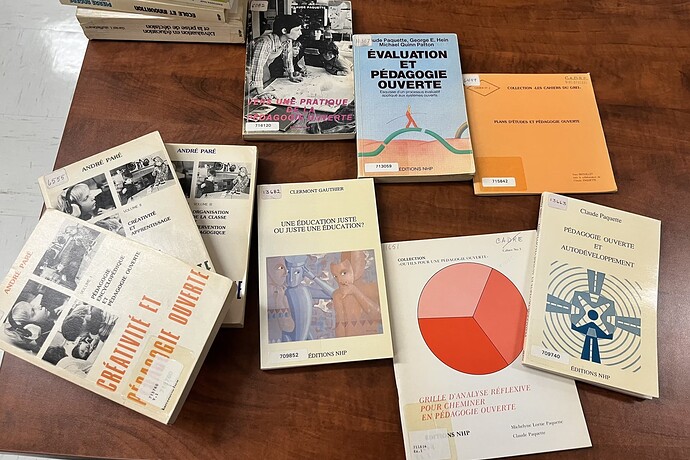Indeed!
In fact, when we created a “Massively Open and Nimble Online Collaborative Learning Experience” on Public Engagement (Learn4PE, as I called it), the OGP is what was driving us. At the time, Canada was OGP co-chair. Laura Wesley, our team’s Executive Director, worked through the Multi-Stakeholder Forum for OGP (alongside people like Jean-Noé Landry, then at Open North, now at the Obama Foundation. Lots happening in the Government of Canada (GC), around that time.
It was the first MOOC-like experience within the GC… where Stephen Downes works.
Nowadays, the OGP connections might sound less obvious. Still, there’s OEness in the GC, as was obvious during LearnX. Two useful examples (that I’ve shared previously; thanks Discourse for the warning):
So, @wernerio, you might be the person I need to ask… Are you aware of other initiatives by governments and public servants to share OERs? When “dOErs” talk about govvies involved in OE, it’s mostly about policy or funding for educational programs. Yet public servants get involved in other aspects of learning.
Anyhoo…
Another theme on which your insight would be appreciated!
Been on a trail, for the past year, about the links between 21st Century OE and Open Pedagogy movements from the mid-to-late 20th Century. It was really impactful in Quebec.
https://twitter.com/enkerli/status/1453385487520079878?s=20&t=ePYAO8etluP5G3PzWywdHA
(Alt-text: book covers from Éditions NHP, 1976-1986, focused on Open Pedagogy.
-
Paquette, Claude (1976) Vers une pratique de la pédagogie ouverte
-
Brouillet, Yves (1977) Plans d’études et pédagogie ouverte
-
Paré, André (1977) Créativité et pédagogie ouverte (volumes I–III)
-
Lortie Paquette, Michelyne et Claude Paquette (1980) Grille d’analyse réflexive pour cheminer en pédagogie ouverte
-
Paquette, Claude et al. (1980) Évaluation et pédagogie ouverte
-
Paquette, Claude (1985) Pédagogie ouverte et autodéveloppement
-
Gauthier, Clermont (1986) Une éducation juste ou juste une éducation ? : critique des courants pédagogiques contemporains
My photo, CC0 Public Domain Dedication.)
We’ve all gone to school in such a learner-centred system and there have been multiple attempts at reforming education, most revolving around learners’ needs (though a move towards ungrading was thwarted, 20 years ago).
To this day, Quebec learners have tuition-free access to high quality education (including a large part of post-secondary education). Which leads to student strikes (including yesterday and ten years ago) about university tuition.
Yet, somehow, we’ve mostly moved away from the whole pedagogical trend towards openness. Sure, we’ve been creating OERs for a while (contrary to some claims). And Open Research has been lively for a long time. Not to mention all sorts of community-led initiatives to help people learn. (My favourite is University of the Streets Café (concordia.ca))
Yet approaches to school-based learning have become much more focused on teaching, especially in post-secondary education.
I hear a number of people talk about “The Global South” as though such models were completely absent. “Oh, you know, in those ‘countries’, the ‘sage on the stage’ model is the norm. Very hierarchical. What we do in the North is completely foreign.”
What puzzles me, though, is that I also hear about the impact people like Freire, Illich, and Abreu have had in parts of the World which are generally considered to be part of “The Global South”.
So, my questions would be:
- What inspiration can we draw from those earlier parts of the history of Open Pedagogy?
- What made “us” shift away from those modes of learning, worldwide?
Thanks a lot for the insight!
(As usual, apologies for length.)
